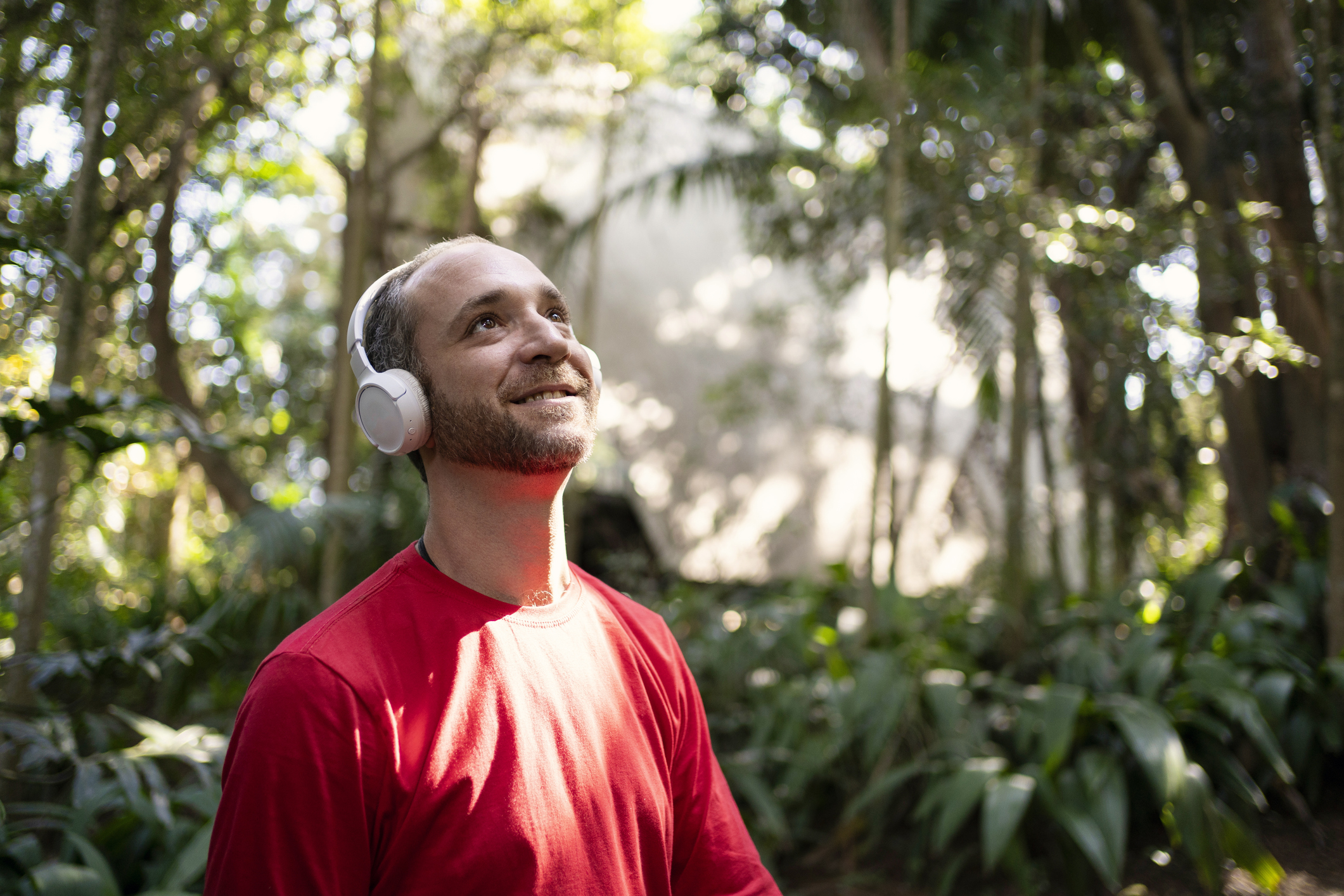
Table of Contents
Expert Advice on How to Cope With Autistic Burnout

Written By: Ashley Laderer

Clinically Reviewed By: Jordanne Greenberg
May 14, 2025
7 min.
Are you on the spectrum and feeling emotionally and physically exhausted? You might be experiencing autistic burnout. Keep reading to learn more.
Learn more about our Clinical Review Process
Table of Contents
Autism spectrum disorder (ASD) is a neurodevelopmental disorder that comes along with its own unique set of strengths and challenges. Autistic people experience social differences, sensory sensitivities, and difficulty coping with change, all of which can contribute to ongoing stress levels. When these stressors pile up over time, it can lead to a state of overall exhaustion known as autistic burnout. Along with this exhaustion, you might have difficulty functioning altogether. Read on to learn more about what autistic burnout is, what causes it, common signs to watch for, how to cope, professional support, and more.

Get neurodivergent-affirming support through Charlie Health’s programs
Connect with a compassionate care team who sees and supports you, exactly as you are.
What is autistic burnout?
Autistic burnout refers to a state of extreme mental and physical exhaustion, says Beth Couture, MSS, LSW, a Charlie Health Experiential Therapist. “Autistic people experience it as a result of living in a world that is oriented toward neurotypical people,” she says, noting that this is a very common experience among the autistic community. Although anyone can experience general burnout due to chronic stress, this is very different from autistic burnout, an experience unique to neurodivergent folks.
“Autistic burnout happens because of the demands placed on autistic people by a world that centers the neurotypical experience — a world that autistic people cannot usually control,” Couture says. “The circumstances that create autistic burnout are considered ‘normal’ by neurotypical people and are found everywhere in an autistic person’s daily life.”
This is partially because society is designed with neurotypical people in mind, not neurodiverse individuals. “Autistic people cannot control the systemic and structural ways in which neurotypicality is privileged in the world around them and therefore face more difficulty in making changes to respond to them,” Couture says.
What are the common signs of autistic burnout?
Common signs of autistic burnout range from mental exhaustion to social withdrawal to irritability, says Cecilia Masikini, MT-BC (she/her), a Creative Arts Group Facilitator at Charlie Health.
According to Masikini, autistic burnout symptoms include:
- Mental, emotional, and physical exhaustion
- Increased sensitivity to stimuli
- Withdrawal from social interaction
- Reduced ability to mask
- Irritability
- Trouble concentrating
- Heightened anxiety
- Reduced ability to perform daily tasks
In more extreme cases, someone might experience autistic shutdowns or meltdowns, Couture says. A shutdown is when you feel frozen; it’s an internal experience of emotional pain, and you typically withdraw from whatever situation you’re in. You might even lose your communication skills and feel unable to speak.
A meltdown is when you’re extremely overwhelmed and feel out of control. In contrast to a shutdown, a meltdown is often very outwardly obvious, including crying, yelling, or engaging in self-soothing stimming behaviors. Shutdowns and meltdowns are involuntary and very distressing to an autistic individual.
What are the causes of autistic burnout?
Causes and triggers for autistic burnout range from prolonged stress to sensory overload.
1. Masking
Masking autism refers to hiding or camouflaging autistic traits to appear more neurotypical. “Autistic people often feel that they must mask in order to be accepted, and the stress of doing so is extremely harmful,” says Couture. Masking is exhausting, and if you’re consistently masking your autistic traits, refraining from stimming, or hiding your special interests, your mental health can take a toll, resulting in autistic burnout.
2. Prolonged sensory overload
Many autistic individuals experience increased sensitivity to sensory stimuli, which may feel uncomfortable and anxiety-inducing. “Lights, sounds, and crowds can be particularly overwhelming to folks on the spectrum, and being forced to engage with these day after day is extremely difficult and unhealthy,” Couture says.
3. Lack of accommodations and/or support
Accommodations, whether at school, work, or beyond, can help autistic individuals thrive in the neurotypical world. When someone has a lack of accommodations and inadequate support at work, school, or home, this can take a toll on mental health, leading to autistic burnout, Masikini says.
4. Ongoing stressors
Generally speaking, trying to meet neurotypical expectations without opportunities for sufficient rest is exhausting, Masikini says, contributing to ongoing chronic stress.
5. Life transitions and changes in routine
Autistic people typically thrive with structure, predictability, and routine, and may feel intense anxiety when the norm is thrown off. Masikini says the stress that comes along with routine changes can also contribute to autistic burnout.
How does autistic burnout affect mental health?
Autistic burnout can take a great toll on mental health. It can lead to or worsen symptoms of conditions like depression, anxiety, or PTSD, Masikini says. “Autistic individuals may feel a sense of failure, shame, or isolation, particularly if others don’t understand what they’re going through,” she adds.
Essentially, autistic people often spend significant energy developing coping skills to mask in a neurotypical world. During autistic burnout, losing these skills can be distressing and lower self-esteem or confidence in handling daily life. This is why it’s crucial to recognize early signs that you’re entering burnout territory and take steps to address it before it worsens.
How to cope with autistic burnout
Here are five tips that can help with both preventing autistic burnout and coping with burnout when it hits.
1. Practice self-care
Self-care is non-negotiable. Couture suggests:
- Prioritizing rest and sleep
- Learning relaxation techniques
- Practicing mindfulness and/or meditation
- Spending time in sensory-supportive environments
Stimming and self-soothing activities are also great self-care tools to help you regulate your nervous system, Masikini says. If you’re in an environment where you’re dealing with sensory overstimulation, you can take care of yourself by using noise-cancelling headphones, dimming the lights, or heading to a quiet space, she adds.
Remember to take care of your physical health, too — getting regular exercise, staying hydrated, and eating a balanced diet.
2. Reduce demands
If you keep trying to meet more and more demands or obligations when you’re already burnt out, you’ll feel even more emotionally and physically exhausted. Masikini urges you to rest and reduce demands, which might look like taking time away from stressful environments or social obligations. Listen to your body and give yourself what you need.

What is Stimming? Understanding the Connection With ADHD and Autism
Dr. Rasna Kaur Neelam
3. Lean on friends and loved ones
“Having a good support network of people who understand the stress and distress that masking and sensory overload can cause — and who will help their loved one find relief — is also extremely important, especially if these people will act as advocates when needed,” Couture says.
It can also help to have fellow neurodivergent friends who you feel totally comfortable being yourself around. Many autistic people report that they feel more comfortable around other neurodivergent people, where there is a shared sense of understanding and no need to mask.
4. Set boundaries
The importance of setting boundaries cannot be overstated. Understanding your needs — and then setting and maintaining boundaries to meet these needs — is paramount for people on the autism spectrum, Couture says. A couple of examples of boundaries you might set include:
- Limiting social plans that feel too draining
- Requesting breaks during overwhelming situations
- Saying no to tasks that exceed your current capacity
5. Seek accommodations at work or school
If you don’t already have accommodations at school or work, Masikini suggests seeking these out. Ask HR at work or disability services at school. These accommodations may include:
- Flexible scheduling
- Quiet spaces
- Adjusted lighting
- Getting written instructions instead of verbal ones
Masikini recommends checking out advocacy organizations such as the Autistic Self Advocacy Network (ASAN) or local autism societies that provide resources and community. These resources can help you advocate for the accommodations you need.
Getting professional support for autistic burnout
On top of these coping strategies, professional support can make a huge difference in supporting your mental health and preventing autistic burnout.
Occupational therapy
Occupational therapy, or OT, is beneficial for autistic individuals of all ages. OT can help autistic people with sensory struggles and provide daily functioning support, for example, Masikini says. An occupational therapist will help you identify your areas of difficulty and devise a practical plan to help you address them.
Psychotherapy
Psychotherapy, AKA talk therapy, is a great way to cope with autistic burnout and improve mental health overall. However, it’s important to seek out therapists or counselors who are trained in neurodiversity-affirming approaches, Masikini says. A neurodiversity-affirming therapist will celebrate your autistic strengths and accept you exactly as you are without trying to change any of your autistic traits. Your therapist will teach you valuable coping strategies to manage stressors and address any underlying mental health conditions.
It’s extremely common for autistic people to experience mental health concerns. Anywhere from 54% to 94% of autistic people experience at least one co-occurring mental health condition at some point in their lives. Therapy to address these co-occurring disorders can help manage symptoms and improve general well-being.

How Charlie Health can help
If you’re struggling with autistic burnout and other mental health concerns, Charlie Health can help. Our virtual Intensive Outpatient Program (IOP) provides more than once-weekly mental health treatment for people dealing with mental health conditions, including anxiety, depression, and more.
Our compassionate clinicians practice neurodiversity-affirming therapy, celebrating you as you are while helping you to cope with challenges related to autism spectrum disorder. We incorporate evidence-based therapies into individual counseling, family therapy, and group sessions. Plus, we even offer neurodivergent-exclusive peer groups so you can connect with others who understand exactly what you’re going through. With this kind of support, improved mental health is within reach. Fill out the form below or give us a call to start your journey today.
References
https://pmc.ncbi.nlm.nih.gov/articles/PMC8595127/
https://www.ncbi.nlm.nih.gov/books/NBK525976/
https://journals.sagepub.com/doi/full/10.1177/1362361320908976
https://askjan.org/disabilities/Autism-Spectrum.cfm
https://research.aota.org/ajot/article/78/3/7803397010/25188/Occupational-Therapy-Practice-Guidelines-for
https://pmc.ncbi.nlm.nih.gov/articles/PMC10482712/




